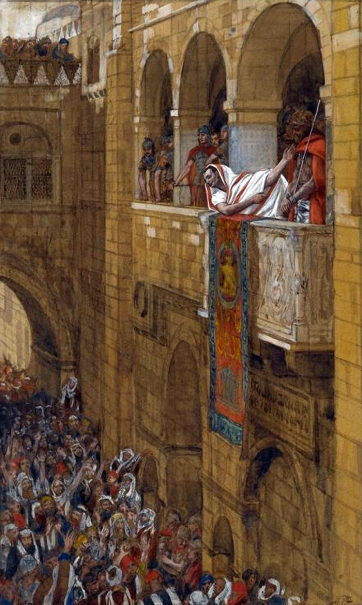When Pilate saw that he could not prevail at all, but rather that a [c]tumult was rising, he took water and washed his hands before the multitude, saying, “I am innocent of the blood of this [d]just Person. You see to it.” Matthew 27:24
The Gospel writers give their account of Christ’s passion, they were not trying to give a biography of Pontius Pilate. Without historical context, It is easy for us to see Pilate as a weak and indecisive governor. He is afraid of an angry mob, so he gives in to the Jewish aristocracy and has Jesus crucified.
But history and other New Testament passages describe a Pontius Pilate who could be ruthless and willing to keep the peace at all costs.
According to the Jewish historian Josephus, when Pilate brought images of Caesar on Roman shields and standards into Jerusalem, protesters gathered. He threatened to ”cut them in pieces, and gave intimation to the soldiers to draw their swords.” The Jewish protestors refused to budge, and Pilate eventually relented.
Josephus also tells us that Pilate built an aqueduct using temple treasury money. When protestors gathered, he had soldiers dress like common men, “gave the signal from his tribunal, and many of the Jews were so sadly beaten, that many of them perished by the stripes they received.”

Behold the Man (Ecce Homo) – James Tissot
Philo, a Jewish philosopher, described Pilate’s “…corruption, his cruelty, and his continual murders of people untried and uncondemned.”
Luke mentions the “Galileans whose blood Pilate had mixed with their sacrifices” (13:1).
According to John, a detachment (speira) of soldiers accompanied Judas and temple officials at Jesus’ arrest (18:12). The Greek word speira is a cohort of 600 Roman soldiers, who would have been under Pilate’s command.
Pilate normally would not hesitate to crucify a political threat or slaughter an angry mob. Why does he hesitate on Good Friday?

